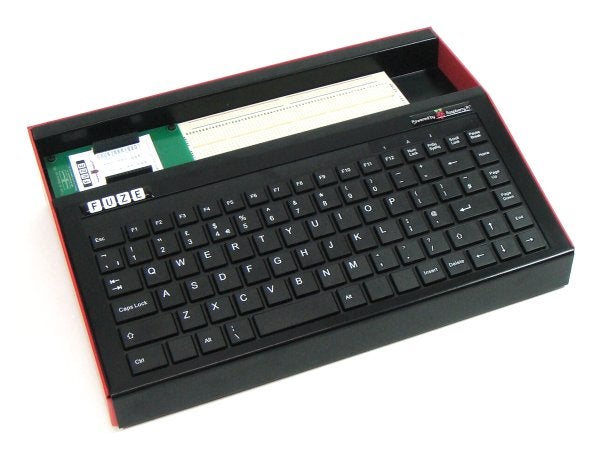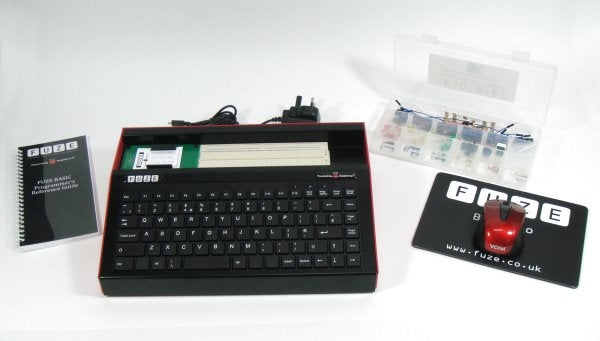Fuze Case for Raspberry Pi Review - Performance and Verdict Review
Performance and Verdict
A Raspberry Pi in a case with all the trimmings and a prototyping breadboard

Sections
- Page 1 Fuze Case for Raspberry Pi Review
- Page 2 Performance and Verdict Review
Fuze – Performance
Although it can be put to a lot of uses, the Fuze is primarily intended as a tool for teaching programming and electronics. Fuze BASIC appears a good implementation of the language, though it would be useful to have a handbook on its use, rather than just a reference of commands.
Also, with a claimed emphasis on structured programming – indenting loops and capitalising keywords etc – it would be useful to have support in the editor, such as a working Tab key. We couldn’t delete a blank line in a source program, either, since neither Delete not Backspace work when there’s no text in a line.
The Project Cards, intended to help teaching programming and experimenting with simple electronics, are good, too. There are only four programming and one electronics projects so far, but Fuze is intending to release one a week and is encouraging customers to send their own in to swell the numbers further.
There are a few errors in the supplied Project Cards, with some of the pictures not matching the instructional text, but no doubt these will get cleared as Fuze receives feedback.
On the hardware side, Fuze shows what the Raspberry Pi is capable of and works well. The keyboard could do with a wider spacebar – there are two unused keys to its right, which might be replaced with a wider bar to ease typing, but it’s the only serious complaint.
Should I buy the Fuze Case for Raspberry Pi?
If you don’t want the hassle of wiring up a Raspberry Pi or want to take it into an environment where a more robust device is needed, the Fuze is a good option. There are plenty of small, individual Raspi cases around, of course, but you still have to have keyboard, breadboard and I/O board linked in separately, while here they’re well integrated.
Verdict
The Fuze way of turning a mini single-board computer into a worthwhile workstation is solid and looks likely to be reliable. There are one or two slightly rough edges in this first incarnation, but nothing that can’t be smoothed off in the coming months. By the time you’ve added all the extras to the computer itself, the price looks reasonable. The Project Card support for the unit as a teaching aid could mean the Fuze pays for itself over and over.
Next read our Raspberry Pi review

